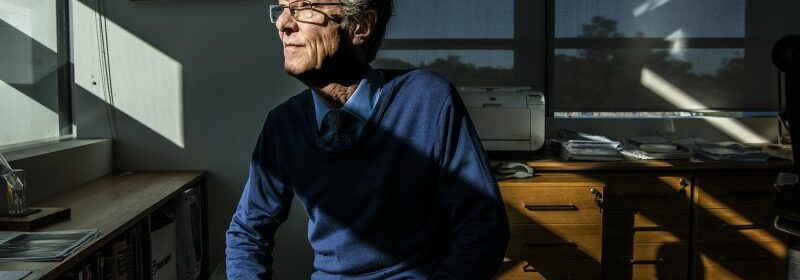‘I lose sleep at night’: Experts fight to expose science fraud in Australia

Save articles for later
Add articles to your saved list and come back to them any time.
Key points
- A new online tool, Retractions Australia, will track scientific papers that have been or pulled by peer-reviewed journals.
- One estimate suggests about one in every 50 published papers has evidence of deliberate manipulation.
A leading scientist behind a bid to track scientific fraud and misconduct in Australia hopes it will shine a light on the issue.
Online tool Retractions Australia is tracking scientific papers that have been retracted – or pulled – by peer-reviewed journals.
Professor Simon Gandevia. “I thought I was part of a river that was going in the right direction. But it is totally clear now there are major forces that are distorting all that.”Credit: Steven Siewert
It is backed by leading research institute Neuroscience Research Australia and already has about 500 entries drawn from a database maintained by the US-based Centre for Scientific Integrity.
Retractions and scientific misconduct, once thought to be extremely rare, have come into sharp focus over the past decade as scientists have discovered more cases.
Ivermectin gained prominence as a treatment for COVID-19 based on a large number of fraudulent studies, some researchers argue.
One estimate suggests about one in every 50 published papers has evidence of deliberate manipulation; other scientists have even gone as far as claiming “most published research findings are false”.
Professor Simon Gandevia, deputy director of Neuroscience Research Australia and one of Australia’s most senior scientists, founded Retractions Australia after having increasingly strong concerns about the direction of the country’s research establishment.
“I thought I was part of a river that was going in the right direction. But it is totally clear now there are major forces that are distorting all that. I lose sleep at night,” he said.
One retraction notice tracked by the website points to a scientific survey that was pulled after the discovery that nearly all the survey’s answers seemed to come from a computer associated with the study’s lead author. In another case, a journal publisher claimed to discover “co-ordinated peer-review rings” – authors and reviewers working together to bypass the rigorous peer-review process.
These retractions are the dark ocean below high-profile cases of alleged scientific misconduct, such as Mark Smyth, a leading Australian cancer researcher who was referred to corruption authorities in 2021 over allegations of research misconduct.
Put together, cases of misconduct can lead to scientific “discoveries” that don’t stack up. A 2015 effort to reproduce 100 psychology studies from top journals, published in Science, found just 39 could be.
‘I think it’s something Australians would be horrified to know about. And there is a reticence to talk about it.’
The new project was welcomed by the Association of Australian Medical Research Institutes on Monday.
“Research integrity is the cornerstone of ensuring quality scientific work,” a spokeswoman said. “The Australian public are now able to see with more reliability when scientists review work, which will help them understand the lengths scientists will go to to constantly verify and validate results.”
Universities Australia said: “Researchers and institutions [follow] a robust set of principles to maintain Australia’s culture of research quality and integrity.”
Elizabeth Lacey, a principal at Lacey & Co who has worked on several research misconduct and fraud investigations for institutes, said the public would be “astounded” at the level of scientific misconduct that goes on.
“I think it’s something Australians would be horrified to know about. And there is a reticence to talk about it. No one is wanting to bring down science. But the system is such, it makes sense in many ways to be fraudulent.”
Rather than making innovative breakthroughs, modern scientific careers tend to depend more on publishing papers in scientific journals – a process nicknamed “publish or perish”.
That encourages researchers to pump out studies and push the boundaries of accuracy.
In recent years, a thriving “paper mill” industry has also taken hold in certain countries, allowing academics to pay to be listed as an author on a paper.
Lacey said that in Australia, research misconduct is policed by a scientist’s own institution – creating an incentive for things to be swept under the rug.
Professor David Vaux, a leading research integrity campaigner, said the new website was a welcome development. “[It] illustrates Australian researchers are human – and sometimes people do the wrong thing. But unlike other countries, because Australia does not have a national office of research integrity, it’s much more likely things will be swept under the carpet,” he said.
Liam Mannix’s Examine newsletter explains and analyses science with a rigorous focus on the evidence. Sign up to get it each week.
Most Viewed in National
From our partners
Source: Read Full Article
